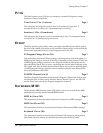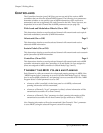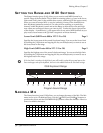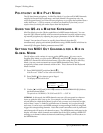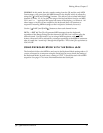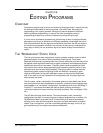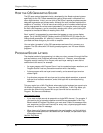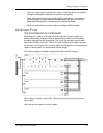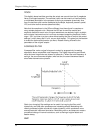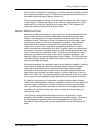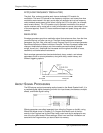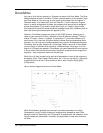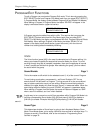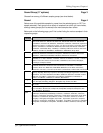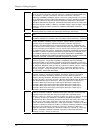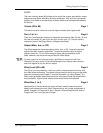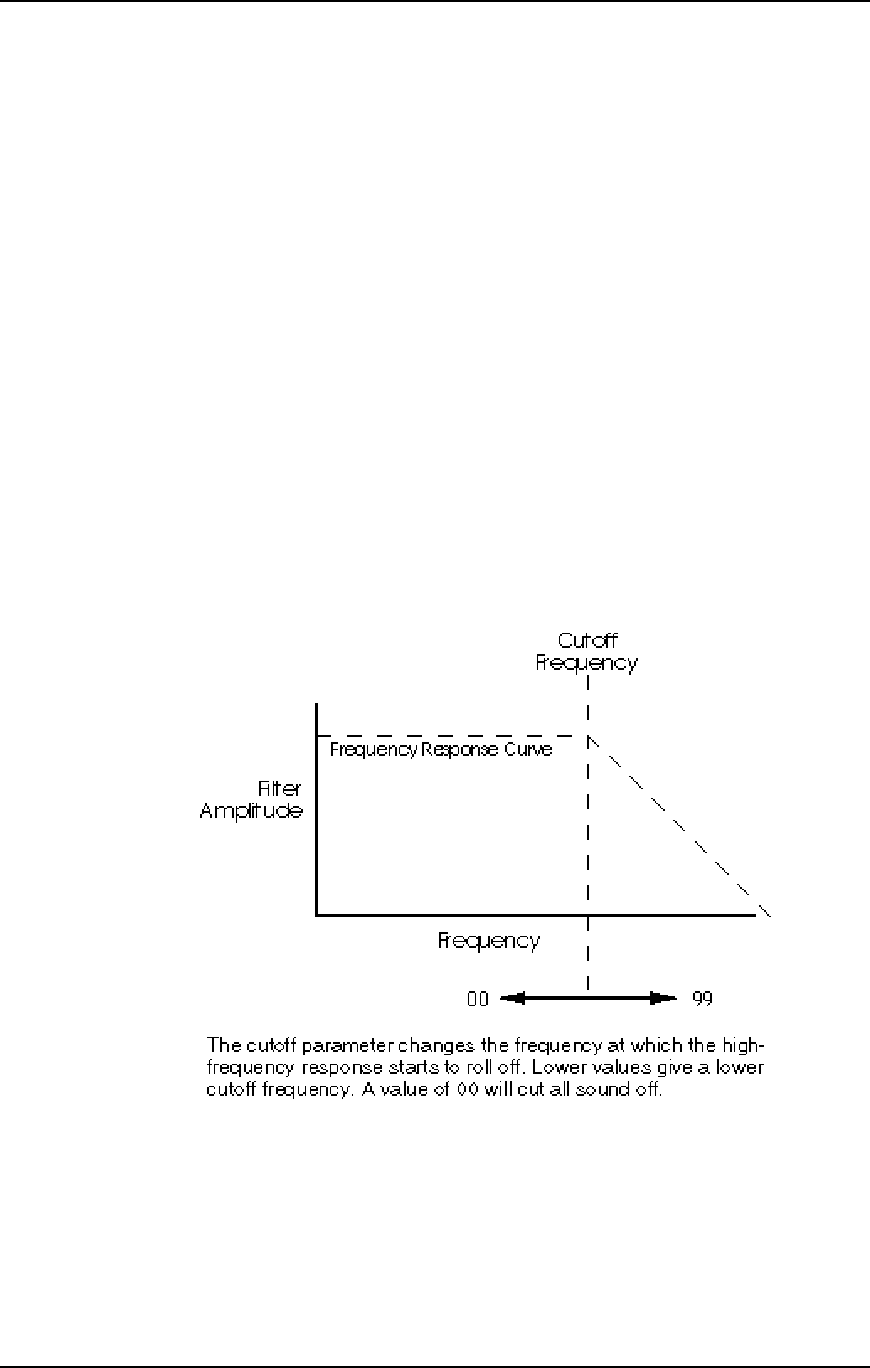
Chapter 6: Editing Programs
VOICE
This digitally-based oscillator provides the actual raw sounds from the 16 megabyte
library of on-board samples. The oscillator’s pitch can be tuned to a fixed frequency
or modulated. Modulation is the process of varying a parameter dynamically over
time; the oscillator pitch can be modulated by envelope, keyboard, pressure, pedal,
LFO, and other control sources (described later).
Note that the waveforms in the QS are different from those found in samplers or
many sample-playback units. Because the QS has its own filter module and
amplitude module for each voice, the pure waveforms are relatively bright--as bright
as the original instrument can be--and have a constant sustaining amplitude, like an
organ. So if you listen to a piano voice without setting the filter or amp to the correct
settings, it won't decay after it is hit, as you might expect. This gives you the freedom
to create the timbre and dynamics you want, instead of being chained to the
parameters of the original sample.
LOWPASS FILTER
A lowpass filter varies a signal’s harmonic content by progressively increasing
attenuation above a specified cutoff frequency. The higher frequencies are filtered,
while the lower frequencies are allowed to “pass-thru.” When the cutoff frequency is
set high, the sound becomes brighter; when set low, the sound becomes bassier
since fewer harmonics are present.
Static (non-changing) filter settings can be useful, but varying the filter cutoff
dynamically over time often produces more interesting effects. Modulating with
velocity produces brighter sounds with louder dynamics, which produces a more
accurate acoustic instrument simulation. Modulating with an envelope can create a
pre-defined change in harmonic structure, such as having a brighter attack and
bassier decay.
AMP
50 QS7/QS8 Reference Manual



